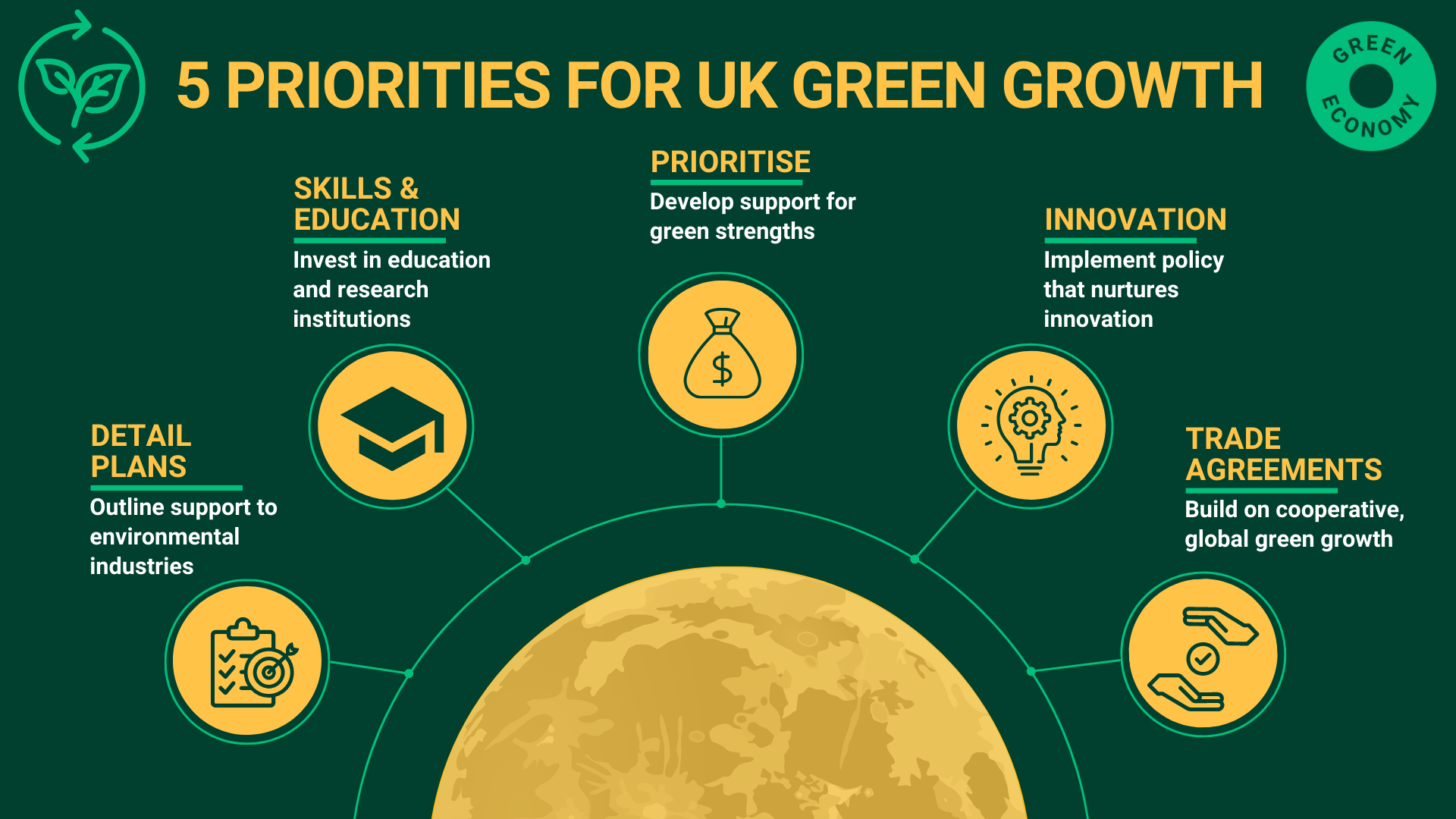
Global outlook: Building the UK’s pro-innovation green sector
Read time: 3 minutes
The UK can remain competitive and prominent in the global green economy by attracting businesses with pro-innovation regulation. As other economies implement new strategies to secure dominant positions across the sector, the UK will need to think strategically to achieve both growth and net zero.
The US Inflation Reduction Act (USIRA) and the EU Green Industrial Deal (EUGID) are the most recent policies signalling clear competition.
Firstly, the EUGID focusses on four key pillars: a simplified regulatory environment, faster access to funding, skills, and open trade. The purpose of the plan is to enhance the EU’s manufacturing sector to support net zero technology, innovation and products. In particular, the strategy will work alongside the Critical Raw Materials Act to secure the supply of materials vital for the production of net zero tech.
The USIRA outlines one of the largest packages of domestic climate tactics which the US unveiled in August 2022. The plan details $369bn for climate strategies including renewable energy investment, low carbon tax breaks, and electric vehicles. It’s a clear indicator of the US’s intention to boost the green sector and consolidate its position as global leaders.
The consequence of these two monumental strategies has been the spark of a net zero rat race, and the UK is slipping behind.
Investing in innovation, research, skills and education will be the UK’s most effective strategy in a competitive industry, as outlined in Boston Consulting Group’s Centre for Growth report. However, the UK must move with more caution since it doesn’t have access to the same magnitude of funding as superpowers like the US and EU. The UK also has a smaller manufacturing capacity in comparison.
This is why skills, education and research are being heralded as viable drivers of UK net zero growth. Historically, the UK has been a global hub for services, innovation, workforce skills, and educational and research institutions. By constructing a strong regulatory framework that benefits innovative and research-led businesses involved in the green technologies and services sector, the UK could champion the organisations driving its green sector and pioneer world leading climate technologies.
At present, the UK’s strengths are dominated by service industries, which contributed 80 per cent of total UK gross value added in 2021, including retail, professional services, business administration and finance. These tools could prove essential in the net zero transition.
The UK government should start by acknowledging its areas of strength and developing strategies to support these sectors. The UK is currently a world leader for offshore wind which was achieved with forward thinking policy action and significant investment into this renewable energy source. Mirroring such strategies across other UK green industries with equal potential could prove beneficial to overall sector growth.
Another key factor of the net zero transition involves securing global supply chains to establish access to key materials. Without amicable trade relationships focusing on the likes of lithium, cobalt, copper, aluminium and more, the UK could risk slipping behind on the development and manufacture of green products which rely heavily on these materials.
“For the UK, we should be seeking to place that spirit of shared partnership at the front of our reception to the Inflation Reduction Strategy, and establish where we can work together, to build on our comparative advantages, and to recognise that for the US and the UK, we can build the climate industries of the future together,” says Chris Skidmore, the government’s net zero chief.
Recently, Grant Shapps, the UK Secretary of State for the Department of Energy Security and Net Zero, embarked on a four-day visit to the U.S. The trip was designed to strengthen UK and US relations and safeguard future collaboration.
A key part of the visit will be the UK’s public backing of US carbon removal plans, in which the UK will join Biden’s Carbon Management Challenge, encouraging countries to invest in technology, innovation and development to capture and store carbon. The UK has particular reason to engage with the challenge, since it has the capacity to hold up to 78 billion tonnes of carbon; an industry worth £8bn and 50,000 new jobs.


In summary, the UK cannot compete with the likes of the US, EU and China through manufacturing capacity and magnanimous investment packages alone. Instead, it could focus on business and innovation-friendly regulatory frameworks and strategies that support the UK’s world leading services which accommodate net zero growth. In particular, the UK must:
Do you install green technology or provide net zero services?
Green Economy's partners have new sales opportunities for installers of solar, LED lighting, heat pumps, EV charging and battery storage, and for providers of energy management systems.
Green technologies and services businesses can create a free profile on the Marketplace to receive direct enquiries from new customers, as well as exclusive sales opportunities from Green Economy.
Explore servicesSearch for a local, trusted green tech supplier
Search for local suppliers by technology, location and experience on the Green Economy Marketplace.
Need more help? We can help you navigate the journey to net zero with expert support and guidance.
Explore MarketplaceCollaborate, innovate and grow
Join our network to hear industry trends, network with peers and foster new partnerships.
Callum Henderson, Nemiah said:
“It was valuable event for us, we generated more leads this morning than we had done in an entire month!
Explore events calendar